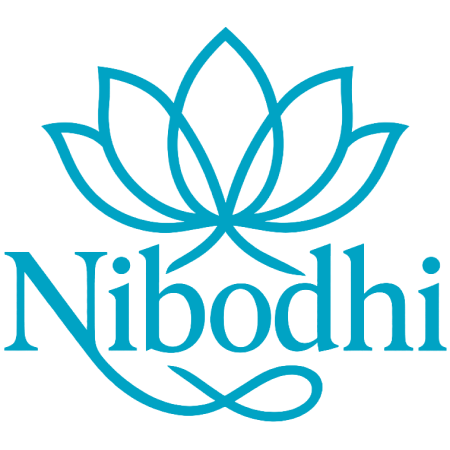Discover why love is the best medicine for healing

This post is for general informational purposes only and may include affiliate links. It is not intended as medical advice. We may earn a commission through qualifying purchases. Read the full disclaimer.
Understanding love as a healing force
Love. We use the word so often, in so many ways, and yet we rarely sit with the full depth of what it means to truly live in love. It is more than something we give or receive. It is a force, a frequency, a healing medicine that touches every layer of human experience.
Love is physical. Love is emotional. Love is communal and spiritual. And love, when we really feel it, embody it, and express it, can quite literally heal the body, calm the mind, mend the heart, and unify a divided world.
That’s what we’re exploring here: The powerful, transformative, scientific, emotional, and spiritual truth that love is medicine and why the world needs it now more than ever.
If you're wondering how to tap into that medicine, keep reading. The most powerful prescription is already within you.
The biological chemistry of love
It might feel poetic to say love is medicine, but science backs it up. When we experience love, whether through a kind word, a gentle touch, or a deep emotional connection, the body responds in remarkable ways. Love actually alters our biochemistry.
The most well-known example is oxytocin, often called the “love hormone.” It’s released during acts of affection: hugs, hand-holding, cuddling, even gazing into someone’s eyes. Oxytocin supports bonding and trust, but it does more than that.
Research shows it plays a key role in several important processes:
- Lowers blood pressure – Helping to reduce cardiovascular stress
- Improves immune function – Making it easier for the body to fight illness
- Reduces pain – Acting as a natural analgesic in the body
And that’s just the beginning. Love also boosts endorphins, the body’s natural feel-good chemicals. These are the same chemicals released when you laugh, exercise, or experience something awe-inspiring like swimming with dolphins or watching a sunset with someone you care about.
Another key player is cortisol, the stress hormone. High levels of cortisol are linked to chronic illness, inflammation, hypertension, and even diabetes. Studies consistently show that people in loving, supportive relationships have lower cortisol levels, stronger heart health, and greater overall wellbeing.
Love regulates the body's natural rhythms. When we feel loved and share love in return, we return to homeostasis. That’s the body’s natural state of harmony, and it’s where healing happens.
Love’s role in healing from illness
Many studies and observations indicate that love supports healing and contributes to improved outcomes in major illnesses.
For example, studies on heart attack survivors have shown that patients with loving social support systems such as spouses, family, or close friends heal faster and experience significantly better outcomes. Similar patterns have been observed among individuals recovering from cancer.
One unexpected story even came from a rabbit study. A group of lab rabbits was being injected with substances to induce illness. But one group stayed mysteriously healthy. Researchers were baffled until they discovered that the student administering injections to that group was holding and gently speaking to the rabbits each time. That small act of love was enough to transform the outcome.
As Dr. Dean Ornish, a pioneer in heart disease treatment, has emphasized: Love and intimacy are as important to healing as diet or exercise. Patients who cultivate meaningful relationships, engage in community, and experience consistent connection see improved health across the board.
Love is not a luxury or a reward for having everything else figured out. Love is a necessity. Love is care. And it supports healing in profound ways.
The many forms of love and their healing powers
Love comes in many forms, each with its own frequency and healing energy. Whether it’s the fierce protection of a parent, the laughter of lifelong friendship, or the deep safety of romantic partnership, all love supports well-being.
Here’s how each type nourishes us:
- Parental love – Unconditional love from caregivers creates emotional safety and confidence that supports lifelong mental health. Children raised in loving homes are more likely to thrive emotionally and physically.
- Platonic love – Friendships offer emotional nourishment and stability. Strong social networks have been shown to reduce symptoms of mental health challenges and promote overall wellbeing.
- Romantic love – When rooted in mutual respect and empathy, romantic love becomes a safe harbor. Physical affection, emotional connection, and shared joy release powerful neurochemicals that lower stress and strengthen bonds.
Among all these forms, unconditional love holds the deepest transformative potential. The kind of love that says, “I see you. I love you. No matter what.” This love doesn’t demand. It simply offers And it liberates.
As Ram Dass once said, “If you find someone who can unconditionally love you, you’ve hit the universal jackpot.” That kind of love changes lives, and those who receive it carry its impact forever.
When love is misunderstood
Not all expressions of love bring healing. When love is misunderstood or misapplied, it may lead to confusion or harm. Love rooted in control, fear, or unmet needs often becomes distorted.
In romantic relationships, jealousy or emotional dependency may appear to be love but can damage trust and create emotional strain. Similarly, when a parent offers praise only when a child meets specific expectations, the child may grow to associate love with performance, leading to self-doubt.
Authentic love uplifts and nurtures. It does not manipulate or diminish. Recognizing the difference helps us cultivate love that truly heals.
This is why self-love is so essential. Without it, even well-meaning efforts can exhaust us or take a toll. Loving yourself creates a strong foundation for loving others.
Building a foundation through self-love
Self-love is a foundational part of living in alignment with care and well-being. You cannot offer others what you deny yourself.
And self-love isn’t just about bubble baths or affirmations (though those are nice). It means treating yourself with the same compassion you’d offer someone you adore.
This looks like:
- Setting boundaries – Saying no when needed so your yes has meaning
- Prioritizing rest – Honoring that your worth isn’t tied to output
- Practicing self-awareness – Through meditation, journaling, or reflection to stay connected to your truth
Many people experience periods when they give so much to others that their own needs are overlooked. Without consistent self-care, fatigue can set in and the joy once felt in service may diminish. Sustainable care for others depends on maintaining a balanced relationship with oneself.
Real love begins with how we treat ourselves.
Love across generations and the healing family connection
There’s something sacred about love passed between generations. A grandparent’s embrace, a parent’s encouragement, a child’s laughter all carry healing energy.
Maya Angelou often credited her grandmother’s unwavering love as the foundation of her strength and creativity. That kind of love leaves a legacy.
Research shows that elders who stay closely connected to grandchildren report lower depression rates and greater life satisfaction. Children who feel that love also show increased emotional intelligence and confidence.
Love moves across generations in all directions, supporting healing throughout the family line. Trauma that runs through families can end when love becomes the guiding thread.
Love as a unifying force in society
Love flows through all types of relationships. It moves through communities, connects people across borders, and fosters unity.
We see it after natural disasters, in acts of solidarity, in movements for justice. Love bridges difference. It inspires action.
- Empathy – Feeling with others creates connection
- Compassion – Taking action to relieve suffering brings transformation
- Shared humanity – Remembering that we belong to one another fosters peace
From global organizations like Doctors Without Borders to small acts of kindness in daily life, love shapes a more compassionate world. Every loving choice adds to the ripple.
Love as a spiritual path
Love holds emotional significance and carries a sense of sacred connection. Every spiritual tradition teaches that love is the highest truth.
In Christianity, agape represents pure, unconditional love. In Buddhism, loving-kindness is a central practice. In Hinduism, bhakti is devotion to the divine expressed through love.
These concepts serve as practical approaches that support healing and connection.
Even science affirms this. Loving-kindness meditation has been shown to reduce anxiety, improve mood, and increase empathy.
Spiritual love reminds us that we are deeply connected. In loving ourselves, others, and the world, we remember our place in the greater whole.
Final reflection on love as the bridge
So where does all this reflection take us?
To a world where love is not just spoken but practiced. Where compassion is the standard. Where connection is our compass.
In that world:
- News celebrates humanity’s kindness
- Children learn to lead with their hearts
- Healthcare centers around connection
- Hunger is met with abundance and generosity
This world is possible. It begins with us.
Love is the best medicine. And if it ever feels like it’s not working?
Increase the dose.
Prefer to listen instead?
This blog post is a written version of the podcast episode, Why Love Is the Best Medicine. It covers the key insights for easy reading. If you want the full audio experience with personal stories and the energy of the conversation, listen to the full episode.
What I use and love
Want to know what I recommend for a healthier, happier life? Every product on Nibodhi’s Favorites is something I personally use, trust, and love. Take a look at my go-to wellness picks.
Join my free newsletter
Get quick daily wins, health insights, and science-backed wisdom for a healthier, calmer, and more radiant life. 5 New tips Every Thursday.

